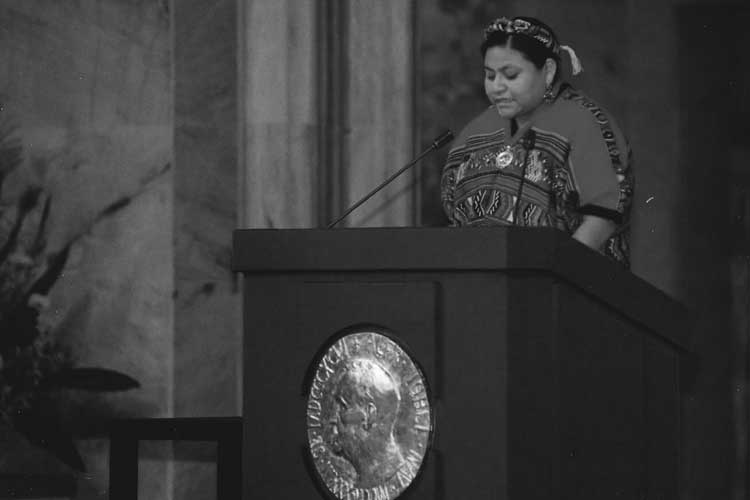The typical framing of anticolonialism, since the age of decolonization, has been that anticolonial actors sought to recover national sovereignty from their imperial rulers.
However, this narrative of national self-determination tends to obstruct how anticolonial political thinkers responded to the global legitimation of empire.
These thinkers encountered a picture of the global that was hierarchical, integrated, and presupposed by modern political thought, and they demanded that this be scrutinized, thereby shaping an array of anticolonial political agendas.
In this research strand, from vantage points like political theory, law, and literary history, we will engage in different anticolonial theorizations of the global:
anticolonial visions of global coexistence;
the fabulations of the post-imperial world;
ideas of alternative international orders.
A symposium on this topic will be held in early 2025.
What is the relationship between anticolonialism and post-colonialism?

“In Guatemala, it is just as important to recognize the identity and the rights of the Indigenous Peoples, that have been ignored and despised not only during the colonial period, but also during the Republic. It is not possible to conceive a democratic Guatemala, free and independent, without the Indigenous identity shaping its character into all aspects of national existence.”
- Rigoberta Menchú Tum,
1992 Nobel Peace Prize Induction
Photo Credit:
Rigoberta Menchú Tum, 1992. Photo credit: © Knudsens fotosenter/Dextra Photo, Norsk Teknisk Museum, via Rigoberta Menchú Tum – Photo gallery. NobelPrize.org. Nobel Prize Outreach.